


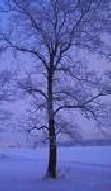







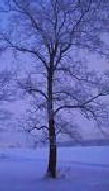





NEXT
BACK
NEXT
BACK


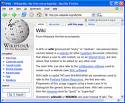
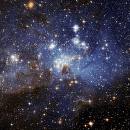
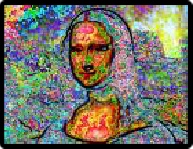



Site Search
REFERENCES and SELECTED READINGS
[Quotations and comments were chosen to illustrate the theme of this thesis, not that of the book excerpted]
- Arthur, Wallace. Creatures of Accident : The Rise of the Animal Kingdom. Farrar, Straus and Giroux, 2006. [“But natural selection alone does not explain how complex creatures can arise from simple ones.”]
- Aunger, Robert. The Electric Meme : A New Theory of How We Think. The Free Press, 2002. [“Any complete description of the universe must include information. . . Nothing in physics makes sense except in the light of information.”]
- Ball, Phillip. Critical Mass : How One Thing Leads to Another. Farrar, Straus and Giroux, 2004. [“The emergence of shape and organization”]
- Bloom, Howard. Global Brain : The Evolution of Mass Mind From the Big Bang to the 21st Century. Wiley, 2000. [“Vitalism is not the only alternative to Darwinism. I propose a new option, that of cooperative evolution based on the formation of creative webs. The emergence of the new picture involves a shift from a pure reductionist point of view to a rational holistic one, in which creativity is well within the realm of the Natural Sciences.” Eschel Ben-
Jacob ] - Bohm, David. Wholeness and the Implicate Order. Routledge, 1980. [“. . . a worldview in which consciousness and reality would not be fragmented from each other.”]
- Bryson, Bill. A Short History of Everything : Broadway, 2004. [“It seems impossible that you could get something from nothing, but the fact that once there was nothing and now there is a universe is evident proof that you can.”]
- Buchanan, Mark. Nexus : Small Worlds and the Groundbreaking Science of Networks. W. W. Norton, 2002. [“Much of modern physics now is not really about matter at all, but about discovering the laws of form in networks of interacting things . . .”]
- Buchanan, Mark. Ubiquity : The Science of History . . .Or Why the World is Simpler Than We Think. Crown, 2000. [“Multiply individual unpredictability a billion times, and it is little wonder that there are no simple laws for history . . .”]
- Capra, Fritjof. The Web of Life : A New Scientific Understanding of Living Systems. Anchor Books, 1996. [“The new understanding of life may be seen as the scientific forefront of the change of paradigms from a mechanistic to an ecological worldview.”]
- Cole, K. C. The Universe and the Teacup : The Mathematics of Truth and Beauty. Harcourt Brace, 1997. [“. . . The world beyond our physical bodies is sculpted by forces that produce omnipresent mathematical objects. . . Numbers can do things that things cannot.”]
- Davies, Paul. God and the New Physics : Touchstone, 1983. [“The existence of mind, for example, as an abstract, holistic, organizational pattern, capble even; of disembodiment, refutes the reductionist philosophy that we are all nothing but moving mounds of atoms”]
- Davies, Paul. Cosmic Blueprint : New Discoveries in Nature’s Creative Ability to Order the Universe. Simon & Schuster, 1988.
[“. . . the new paradigm of the creative universe . . . Its perspective is synthetic and holistic rather than analytic and reductionist.] - Davies, Paul. The 5th Miracle : The Search for the Origin and Meaning of Life. Simon & Schuster, 1999. [“Self-
organization: something from nothing?” ] - Davies, Paul. The Mind of God : The Scientific Basis for a Rational World. Touchstone, 1993. [“Sooner or later we all have to accept something as given, whether it is God, or logic, or a set of laws, or some other foundation of existence.”]
- Davies, Paul. Cosmic Jackpot : Why Our Universe is Just Right for Life. Houghton Mifflin, 2006. [“ . . . an attempt to build all of physics out of information.”]




TO KNOW IS TO BE
Matruana and Varela do not maintain that there is a void out there, out of which we create matter. There is a material world, but it does not have any predetermined features. . . . . They assert that “no things” exist independent of the process of cognition.
—-
The Web of Life
. . . The universe begins to look more like a great thought than like a great machine.
—-
Astrophysicist
MASK OF REALITY
All visible objects, man, are but as pasteboard masks. But in each event . . . some unknown but still reasoning thing puts forth the mouldings of its features from behind the unreasoning mask. If man will strike, strike through the mask!
-
Herman Melville’s Moby Dick